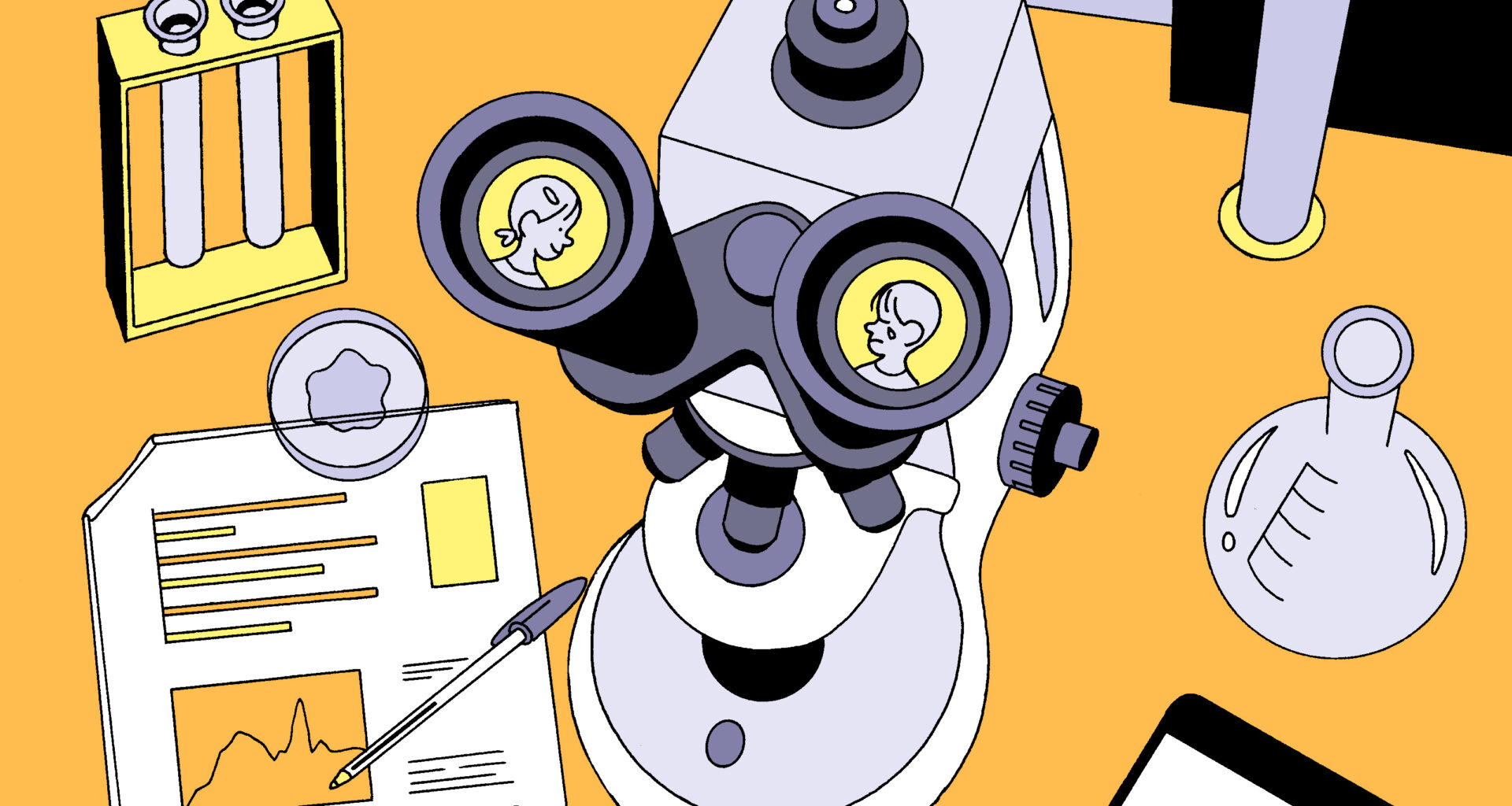Your Mileage May Vary is a column offering unique perspectives on moral dilemmas. It is based on value pluralism—the idea that we each have multiple values that are equally important but often in conflict. To submit a question, fill out this anonymous form. Here is this week’s question from a reader, shortened and edited for clarity:
My partner and I recently went through in vitro fertilization (IVF) and, fortunately, got several embryos. One of them will be implanted in me, hoping to get pregnant. But how do we choose?
My reproductive medicine clinic offers me PGT-A testing, which can detect conditions like Down syndrome, and it will also reveal the sex of each embryo so I could potentially choose the desired one. (And, honestly, I really want a girl!) I’ve also heard about new companies that test embryos for various aspects—for example, how intelligent the child will be, how tall he or she will be, and whether there will be a lower risk of developing breast cancer, diabetes, mental illnesses, and so on.
I don’t know how to feel about this. On one hand, it seems strange, reminiscent of eugenics, when we interfere with embryos, and I can’t shake the feeling that I am being pushed towards medicalizing everything with these expensive tests. But on the other hand, if I can do something to ensure my child is healthier and happier, isn’t it worth trying? What should parents do for their children?
Your Situation is Common
Dear Waiting,
This is an incredibly exciting—and at the same Time, confusing—time. You are preparing to become parents, and it comes with fears, uncertainties, hopes, and dreams. You want to make the right—not just the best!—choice for your baby. That is a beautiful impulse. Unfortunately, it makes it easier for companies to take advantage of your situation.
Let’s consider what these companies can and cannot offer. First, let’s talk about the science, and then about ethics.
About Testing
The test in question, PGT-A, has been around since the 1990s. It can indeed detect conditions like Down syndrome and allows you to find out the sex of each embryo. However, it is important to note that it does not predict what gender your child will actually identify as.
The newer test you mentioned is called polygenic testing. The conditions observed are complex, as they are influenced by many genes. These include breast cancer and depression, among others. Some companies even offer testing not only to prevent diseases but for genetic enhancement—to help you choose a child who will be taller or have a higher chance of a high IQ.
Companies that offer polygenic testing claim they can predict the risk for each embryo regarding various conditions and the relative risk you face by choosing one embryo over another. As statistical geneticist Sasha Gusev explains, this information can be very easily misinterpreted. For example, if a company claims that the absolute risk of developing type 2 diabetes decreases by 12 percent, you might think: ‘Great! That means my child’s chance of ever developing diabetes has decreased by 12 percent!’ But in reality, it may mean that a child who could have developed diabetes is now likely to remain at the upper level of prediabetes or develop diabetes only a few years later. The same applies to other conditions, such as breast cancer.
“Typical estimates of risk reduction often use statistical assumptions to highlight their benefits and create confusion,” writes Gusev.
Ethical Difficulties
It’s worth noting that there is a significant gap between physical diseases, like cancer, which are unequivocally negative, and complex mental disorders, like depression. Polygenic scores do not work as well in psychiatry, notes psychologist Eric Turkheimer. Most mental states have mild, moderate, and severe forms, and it is unclear whether mild or moderate manifestations should be eradicated.
“Of course, it would be wonderful if no one ever experienced depression, but what would that really mean?” writes Turkheimer.
So, I can’t say exactly which tests you should undergo and which you should skip. However, I want to emphasize: do not let anyone pressure you or shame you, especially those with financial interests.
You are not anyone’s captive. You are a moral agent who can freely weigh numerous factors and make a decision that is ‘good enough’ for your family.
Bonus: What I Am Reading
Silicon Valley is obsessed with IQ, so it’s no surprise that tech executives there are using polygenic testing in hopes of creating super-intelligent children. This article shows the tangled situation clients find themselves in as they try to decide whether to choose an embryo with the highest predicted IQ or one with the lowest disease risk.
Revisiting “The Last Children of Down Syndrome,” Sara Zhang’s 2020 article in Atlantic about prenatal testing, I noticed that when people think about ‘prenatal testing,’ Down syndrome is often the first condition that comes to mind.
One trait that many people consider advantageous is a good memory. However, I highly recommend the short story “Funes, his Memory” by Jorge Luis Borges. It reminds us that having too good a memory is not always an advantage.
In today’s world of reproductive technologies, the question of embryo selection is becoming increasingly relevant. Parents should carefully weigh all the pros and cons to make the best decision, considering not only the child’s health but also the ethical aspects of this practice. It is vital to understand that while technologies are changing, moral dilemmas remain, so each case requires an individual approach.
When choosing between standard tests and more complex polygenic analyses, it is worth considering that not everything that seems beneficial at first glance will truly provide a healthy and happy future for the child. This decision must be conscious and well thought out, as every parent aims for the best for their child.

